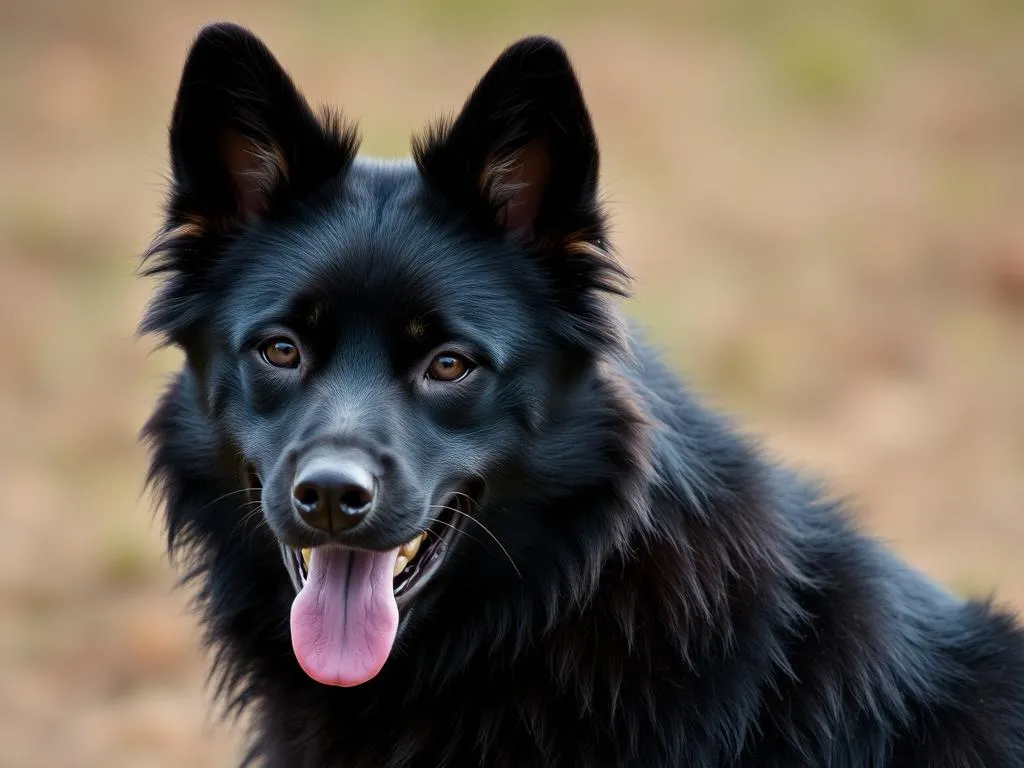
Understanding dog breeds is essential for anyone considering adding a furry friend to their family. Among the myriad of breeds available, the Schipperke stands out for its unique characteristics and charming personality. This breed, with its rich history and delightful traits, has much to offer potential dog owners.
History of the Schipperke
Origin and Ancestry
The Schipperke originated in Belgium, specifically in the region of Flanders. This breed dates back to the early 17th century and is often associated with the Belgian Sheepdog. The name “Schipperke” is believed to derive from the Dutch word “schip,” meaning “boat,” reflecting the breed’s early role as a working dog on canal boats.
Historical Roles
Throughout history, Schipperkes have been invaluable as working dogs. They were primarily used on boats, where they assisted their owners by guarding cargo and alerting them to any intruders. Additionally, their keen hunting instincts made them excellent at pest control, effectively keeping homes and boats free from rodents. Their history as reliable companions and protectors has solidified their place in the hearts of many dog lovers.
Physical Characteristics
Size and Weight
The Schipperke is a small breed, typically standing between 10 to 13 inches tall at the shoulder. Males usually weigh between 12 to 18 pounds, while females tend to be slightly lighter, averaging between 10 to 15 pounds. Their compact size makes them ideal for various living situations, including apartments.
Coat and Color
The coat of a Schipperke is one of its most distinctive features. They have a double coat, with a soft undercoat and a longer, harsher outer coat. This breed is primarily known for its striking black coat, although they can also come in other colors, such as chocolate, cream, and blue. Regular grooming helps maintain the coat’s cleanliness and reduces shedding.
Distinctive Features
One look at a Schipperke, and you’ll notice its erect ears and fox-like face, which give it an alert and intelligent expression. A significant feature of the breed is its natural bobtail, which can be either short or completely absent. These characteristics contribute to the breed’s unique appearance and charm.
Temperament and Personality
General Temperament
The Schipperke is known for its lively and energetic personality. They are curious and playful, often described as “mischievous” due to their tendency to get into things. This breed is highly intelligent, making them quick learners but also requiring mental stimulation to keep them engaged.
Interaction with Families
Schipperkes are known for their loyalty and affection towards their families. They typically get along well with children and can be friendly with other pets, provided they are socialized from an early age. Their protective nature makes them excellent watchdogs, always alert to any potential threats.
Trainability
Training a Schipperke can be both rewarding and challenging. Their high intelligence means they can learn commands quickly, but their independent streak may sometimes lead to stubbornness. Positive reinforcement techniques, such as treats and praise, work best. Consistent training sessions help ensure they remain well-behaved companions.
Health and Care
Common Health Issues
Like all breeds, Schipperkes can be prone to certain health conditions. Common issues include hip dysplasia, patellar luxation, and eye problems, such as progressive retinal atrophy. Regular veterinary check-ups and a healthy lifestyle can help mitigate these risks and ensure a long, happy life.
Grooming Needs
The grooming needs of a Schipperke are moderate. Their double coat requires brushing at least once a week to prevent matting and reduce shedding. During shedding seasons, more frequent brushing may be necessary. Bathing should be done as needed, but over-bathing can strip the coat of its natural oils.
Exercise Requirements
Schipperkes are energetic and require regular exercise to stay healthy and happy. Daily walks of at least 30 minutes, along with playtime in a secure yard, are recommended. They also enjoy activities that challenge their minds, such as puzzle toys or agility training, which can provide both physical and mental stimulation.
Living with a Schipperke
Ideal Living Conditions
Schipperkes are adaptable dogs that can thrive in various living situations. They do well in apartments, provided they get enough exercise. However, they also enjoy having a yard to explore. Regardless of the living space, it’s essential to provide them with a safe and stimulating environment.
Diet and Nutrition
A balanced diet is crucial for maintaining the health of a Schipperke. High-quality dog food that meets their nutritional needs is essential, typically consisting of proteins, healthy fats, and carbohydrates. Owners should consult their veterinarian for specific dietary recommendations based on their dog’s age, weight, and activity level.
Socialization Needs
Early socialization is vital for a Schipperke. Exposing them to various environments, people, and animals can help them develop into well-adjusted adults. Activities such as puppy classes, dog parks, and playdates are excellent for fostering social skills and reducing any potential behavioral issues later in life.
Choosing a Schipperke
Adopting vs. Buying
When considering a Schipperke, potential owners face the decision of adopting from a shelter or buying from a breeder. Each option has its pros and cons. Adoption may offer a loving home to a dog in need, while buying from a reputable breeder can provide a puppy with a known lineage and health history.
Reputable Breeders vs. Shelters
If choosing to buy a Schipperke, it’s crucial to find a reputable breeder. Responsible breeders test for genetic diseases and provide proper care for their puppies. On the other hand, shelters often have mixed breeds, including Schipperkes, and provide an opportunity to save a dog’s life.
Cost Considerations
The average price for a Schipperke puppy from a breeder can range from $800 to $1,500, depending on pedigree and location. Additionally, owners should consider ongoing costs such as food, grooming, and veterinary care, which can add up over time.
Fun Facts about Schipperkes
- Unique Traits or Behaviors: Schipperkes are known for their “bark and dash” behavior, where they bark at something and then run away, showcasing their playful nature. They can also be quite vocal, making them excellent watchdogs.
- Famous Schipperkes: In popular culture, Schipperkes have appeared in various television shows and films, often portrayed as clever and spirited companions.
Conclusion
The Schipperke is a breed full of personality, charm, and a rich history. With their energetic nature, intelligence, and loyalty, they make wonderful companions for active families and individuals alike. If you’re considering adding a dog to your home, researching the Schipperke further may lead you to discover a perfect match for your lifestyle. Their unique traits and affectionate demeanor can bring joy and companionship that lasts a lifetime.









